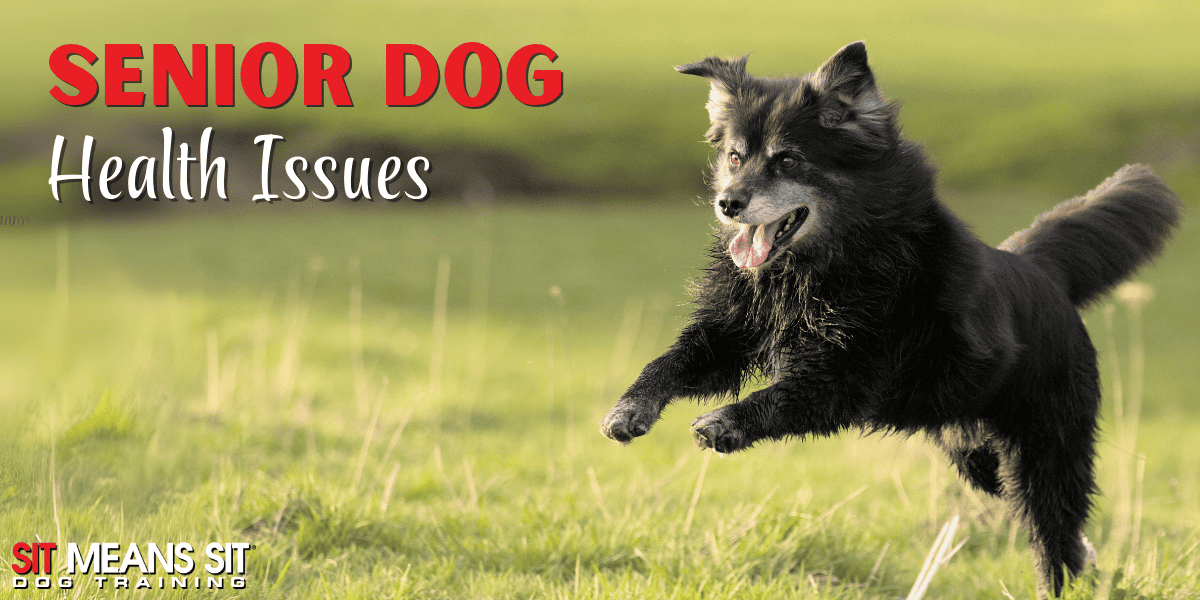No matter how old they get, our dogs will always be our babies. But just like people, dogs go through changes as they get older: their bodies slow down, their senses often fade, and they may need more support to stay comfortable and happy. The good news is that with the proper knowledge and regular vet visits, you can help your senior dog enjoy a long, healthy life. Here’s everything you need to know about health challenges your senior dog might face.
When Are Dogs Considered Seniors?
Dogs are typically considered seniors around age seven, but this depends on their size and breed. Larger breeds, like Great Danes, may be considered seniors as early as age six. In comparison, smaller dogs like Chihuahuas may not hit that stage until they’re nine or older. Keep in mind that genetics, lifestyle, and health history also play a role in how quickly a dog ages. Once your furry friend starts showing age-related changes, they might be considered a senior dog.
Vision Loss and Other Eye Problems
If your dog is bumping into furniture or acting unsure in low light, they might be dealing with vision loss. You may notice cloudy eyes, redness, or more squinting than usual. Two common eye conditions senior dogs develop are cataracts and lenticular sclerosis. Some eye conditions are treatable with professional help, and others just require some extra at-home care. If something looks off (no pun intended), it’s always a good idea to have your vet take a look.
Hearing Loss in Senior Dogs
If your dog seems to be startling easily or ignoring you more than usual, it could be due to hearing loss, not just a stubborn attitude. Canine earing often fades with age, and it usually happens gradually. Thankfully, dogs are great at using their other senses. You can use hand signals, create routines, and rely on vibrations (like a gentle stomp on the floor) to get their attention. With your help, senior dogs can adjust to hearing loss.
Canine Cognitive Dysfunction (CCD)
Some older dogs experience memory or behavior changes similar to dementia in people. This is called Canine Cognitive Dysfunction, or CCD. You might notice your dog pacing, getting “stuck” in corners, forgetting house training, or acting confused in familiar places. It can be hard to see your dog struggle, but there are ways to help. The effects of CDD can be managed by keeping a consistent routine, keeping your dog mentally stimulated, and asking your vet about special diets or medications that can support brain health.
Risk of Cancer for Senior Dogs
Since the risk of cancer increases with age in dogs, it’s especially important to have your veterinarian look at any new or changing lumps under your dog’s skin. Lumps and bumps are more common in older pups, and while many are harmless, it’s important to get them checked. Some signs to watch for include new bumps, sudden weight loss, bleeding, or trouble eating. While we can’t always prevent cancer, regular checkups and catching things early make a big difference.
Kidney, Urinary Tract, and Heart Disease
Older dogs are more likely to develop problems with their kidneys, bladder, and heart. You might see signs like more thirst, more potty trips (or accidents), or loss of appetite. If you notice your dog coughing, being fatigued, and having labored breathing, these are common red flags for heart issues. Some of these issues can be managed with medications, special diets, or professional vet care. If your dog just doesn’t seem like themselves, trust your gut and make a vet appointment.
Arthritis and Other Joint Issues
One of the most common aging problems in dogs is arthritis. You might notice your dog seeming stiff after taking a nap, reluctant to use stairs, or slower on walks. While big dog breeds and overweight pups are especially prone to joint pain, any size of senior pup can experience it. While arthritis can’t be reversed, there’s a lot you can do to ease the discomfort. Joint supplements, ramps, orthopedic beds, and vet-approved medications can all help your dog move around more comfortably. Even gentle exercise can keep them feeling better for longer. When in doubt, always ask your veterinarian for advice.
Older dogs may move a little slower or nap a little longer, but they’re still the same loyal companions we’ve always loved. By staying informed and proactive about their health, you can help them age gracefully and comfortably. After all, they’ve spent their whole life being your best friend—it’s only right to return the favor during their golden years.
Check Out These Posts for More Senior Dog Tips!
Tips for Making Your Home More Accessible for Your Senior Dog

